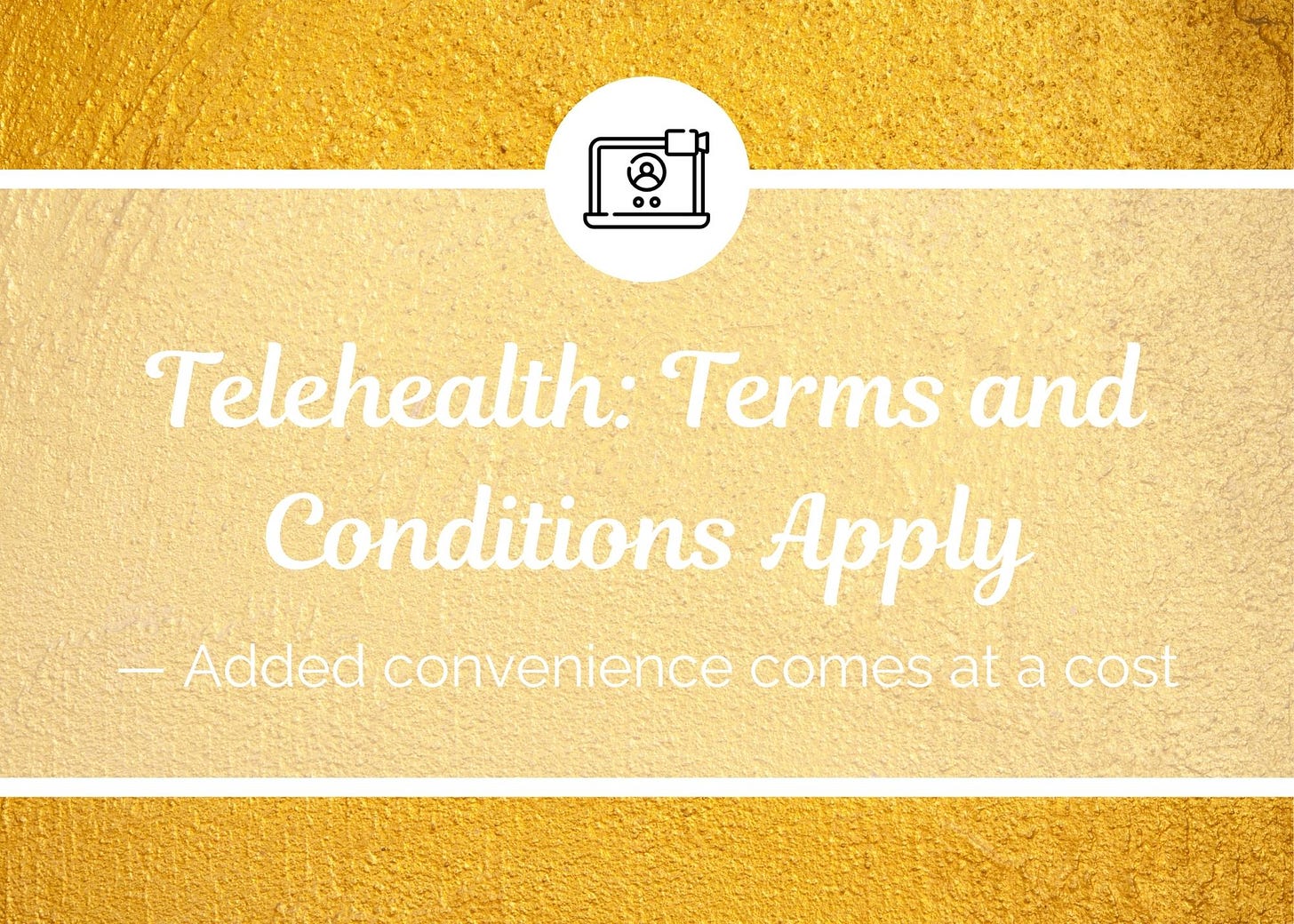Let's say with all that's been going on, you've been feeling increasingly depressed and anxious, so you decide to make an appointment with a psychiatrist who you heard was great. The next courageous step is to actually show up for the appointment, and you arrive a few minutes early to fill out the usual paperwork in the waiting room. Finally, you're shown to her office, and you nervously take a seat on the couch. She smiles warmly and says, "OK, I'm going to begin audio and video recording the appointment now."
Wait, that's not how it's supposed to go. You're puzzled and frozen in place, so shocked you're not sure what to do next.
The doctor's office, like one's home, is a place where we have certain expectations of privacy. Patients expect doctors to take notes and document their visits in an electronic medical record, but they don't expect their visits to be audio and video recorded. With the advent of telehealth, the doctor's office is one's home, but instead of this affording patients more privacy, they have less. It's great to improve access to healthcare and be able to have medical appointments from the comfort of one's own couch, but has anyone read the terms and conditions that come with that convenience? Of course not.
Health Tech Companies' Terms of Service
Here are a few examples from the Terms of Service of so-called health tech "unicorns" -- startup companies that have achieved a valuation of more than $1 billion dollars.
Cerebral: "Cerebral or your Prescriber may record (audio and video) all or part of your interaction with us or them ('Recordings')."
K Health: "You consent to the following in connection with the Virtual Visit Service: (i) Data, chat text, audio, video, and/or digital photos may be recorded."
Lyra Health: "Lyra may record your activity with the Lyra care team or other Services you access through the Lyra Web Site or Services. You agree to the interaction being recorded unless you raise an objection at the time of your interaction."
Rightway: "Your Provider or the Company (on behalf of your Providers) may record (audio and video) all or part of your interaction with us or them ('Recordings'). Your Provider will notify you before making any such recording."
Notably, Rightway's Terms of Service specify that a patient will be notified before being recorded. But in general, that seems to be the exception rather than the rule. The absence of such a provision in the other companies' terms implies that a patient's explicit consent to being recorded isn't necessarily standard in the rapidly growing health tech industry. This is a big problem because it violates the implicit trust that's so essential between patients and their healthcare providers. Given how common it is for people to check the box that says "Agree" without reading or understanding the terms they're agreeing to, patients' consent to these companies' policies is cursory at best.
The Danger of the "Strangely Familiar"
Systems are intentionally designed in the interest of those in power, and despite tech innovators' noble intentions, telehealth is no different. Some of the most successful innovations are those that are "strangely familiar," and in part, telehealth is taking off because it falls into that category. Telehealth appointments are strange because patients are using digital platforms to interact and communicate with their healthcare providers, yet familiar because the content of the appointment remains the same.
Author and investor Nir Eyal, MBA, explains the concept further. He says, "People don't want something truly new, they want the familiar done differently." In the design world, this is referred to as "The California Roll Rule" because the California Roll helped introduce Americans to sushi by combining familiar ingredients in a novel way. Similarly, Apple emphasizes skeuomorphic design, representing objects in such a way that they resemble their real-world counterparts. The Apple Wallet, for instance, makes payment options look like credit cards even though that isn't necessary for the technology to work.
This is important to understand because the familiar part of something that's strangely familiar makes us feel like we know what to expect. Therefore, when a patient decides to give telehealth a try, they automatically show up to the appointment with the same expectations they would have if they were walking into a physical doctor's office. When health tech companies take advantage of that, they run the risk of eroding patients' trust in healthcare. Unless the health tech industry makes significant changes to start earning patients' trust, the erosion already underway will continue to put all that has been built in danger.




